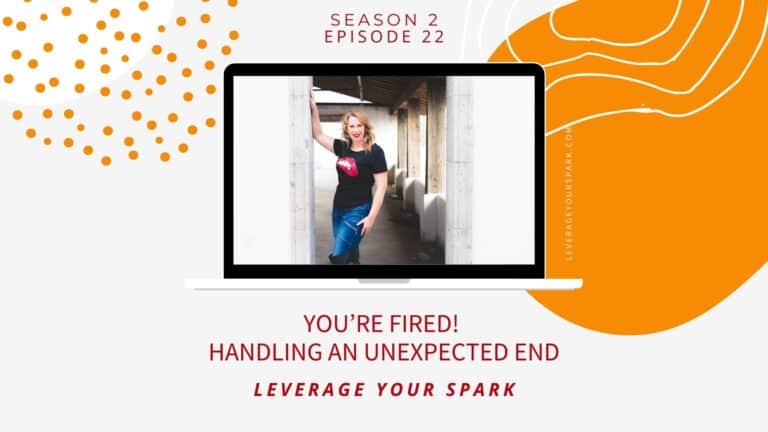You’re Fired! Handling an Unexpected End to a Client-Expert Relationship

In life and in business, there often isn’t a happily ever after. People change roles; companies evolve, get bought, and go out of business; and experts get fired.
In this episode, we’re tackling the uncomfortable topic of the unexpected end to a client-expert relationship.
Listen to Season 2: Episode 22
Breaking Up Is Hard to Do
Nobody likes a breakup. Personal or professional, they’re wrought with feelings, messy humanness, and “It’s not you; it’s me”—when it’s definitely you. Plus, when a relationship needs to be over, it’s always uncomfortable to be the one who points it out, even if the other person wants out too.
Because it is uncomfortable, often we let failing relationships go on too long. There’s always a sense that we can just wait it out and it will end—without us having to do anything. This was the case with one of my college boyfriends. He was going to graduate and move away. He graduated. But he didn’t move away. Then I had to break up with him (and later he became my sister’s brother-in-law, so not awkward at all).
Anyone who’s experienced a relationship that’s no longer working will back me up here: Waiting is always worse than confronting the issue. It doesn’t have to be harsh or sound like an elimination from The Apprentice with, “You’re fired!” screamed at the top of your lungs.
Raising issues and ending relationships that aren’t working is really better for everyone in the long run.
Sometimes, Firing Is the Right Choice
Businesses hire experts or external agencies so they can grow, improve, or add capacity. Then both the business and the expert evolve and change during the course of the relationship.
Sometimes they both grow in the same direction and at complementary rates. Other times, they don’t.
In some cases, we figure out that the pairing isn’t a great fit, or people in the roles change and that changes the course of the relationship. In other cases, there might be a lack of performance or results.
Basically, shift happens.
When it happens, it needs to be addressed.
”You’re Fired”—But Do It with Dignity
Waiting until the shift hits the fan makes it even harder to bring up issues in a client-expert relationship. And by that point, the relationship might just need to end.
So how to tell the other party to GTFO with professionalism? Let’s count it down:
- Communicate early and often. I once heard a speaker ask an audience what the #1 cause of divorce was. They shouted out the usual answers: lying, cheating, money issues. Nope, the reason most couples divorce is…unmet expectations. The best-case scenario is that there’s a system in place to bring up and discuss things that aren’t going well in the work. And that means that small issues and large grievances get aired at the time they are encountered, and both parties are fully aware of the status of the relationship. If there’s no system in place, you might have to be the courageous one and bring up the issues.
- Own your part. It takes two to tango, so figure out what you need to take responsibility for. Sometimes, this simple act can get things back on track. If nothing else, you can improve your own systems and processes going forward.
- Clearly identify what you want to have happen. If you are the client and the expert or external agency has bungled something, tell them how to fix it. Or tell them how you want to end the relationship.
- Agree on the separation plan. This is another place where unvoiced expectations can lead to misunderstandings, resentment and one-star Google reviews. As the client, be very specific on your expectations about how the relationship ends. If needed, directly engage the expert or external agency in a conversation about what is needed to part ways as, there might be work or access you’re unaware of.
And Then It’s Over
Endings are hard, and no one likes to hear that they are fired. But we all know it’s best for everyone to get out of a relationship when it isn’t working. Transitions are a part of life and business, so following these four steps can help you work through it to an amicable end that sets you up for future success.
Wondering how to put this information into action? I’d love to answer your questions about using experts, websites, smart business, and technology. I host a monthly roundtable conversation where you can personally connect with me for answers. All you have to do is show up. Get the next one on your calendar now!

